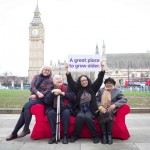Many doctors are failing to make the link between loneliness and damaging health behaviours like smoking, drinking, and poor diet says new research.
A new poll of UK GPs has found that family doctors are under-estimating the health risks loneliness. 36 per cent of doctors questioned didn’t think loneliness made a significant contribution to early death.
This was despite, for example, evidence that having poor social relationships has a greater influence on risk of early mortality than being obese.
Doctors were well aware of the health risks of smoking, excessive alcohol consumption, obesity and low levels of exercise, but some seemed unaware that loneliness, as well as being a significant health risk in itself, has also been shown to be a significant contributor to the likelihood of risky behaviours.
For example:
- Loneliness is a risk factor for alcohol abuse, and may make it harder to give up excessive drinking
- Being single or widowed decreases the daily variety of fruit and vegetables eaten (compared to people who live with a spouse or partner). Older adults who live alone and have infrequent contact with friends eat fewer vegetables each day
- Lonely adults are more likely to be smokers and more likely to be overweight
- Lonely adults are less likely to engage in physical activity and exercise
The Campaign to End Loneliness is calling on Clinical Commissioning Groups (CCGs), the local GP-led organisations responsible for commissioning health services, to make more money available for schemes aimed at reducing loneliness like the £1 million recently announced by Calderdale council and Calderdale CCG.
When asked if loneliness should be treated as a public health issue more than half (52 per cent) of the doctors questioned agreed it should be.
However, only three in 10 (28 per cent) thought Clinical Commissioning Groups should take responsibility for commissioning services to alleviate and prevent loneliness.
Kate Jopling, Director for the Campaign to End Loneliness, says: “As well as educating us about the dangers of an unhealthy lifestyle, doctors need to take an active role in addressing the root causes of poor health choices.
“When we are feeling lonely we are much less likely to look after ourselves. By helping people to maintain their social connections and relationships, or to make new ones, we can also help them to improve their health and ultimately reduce their chances of needing expensive medical care in later life.”




